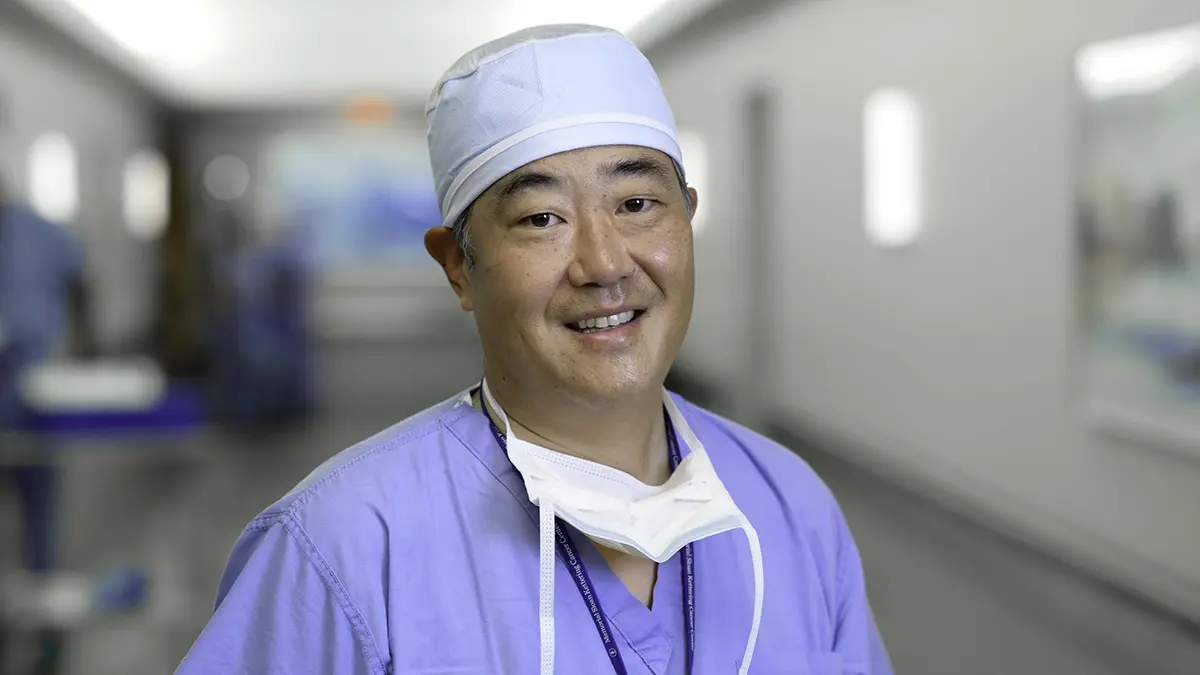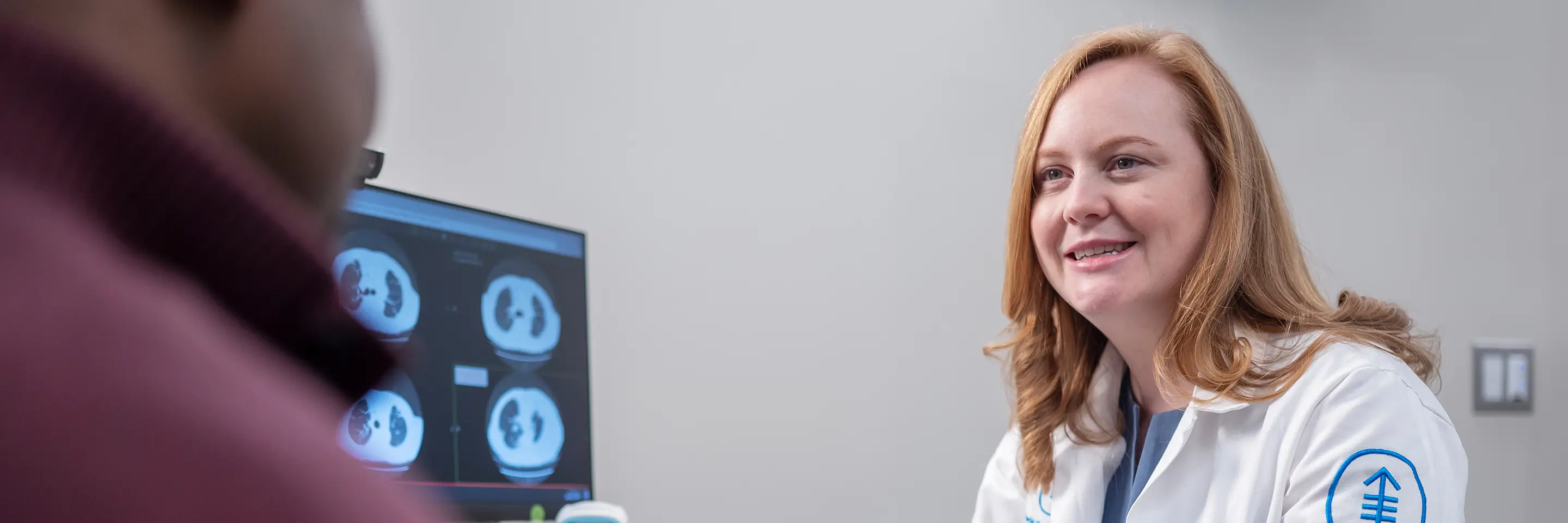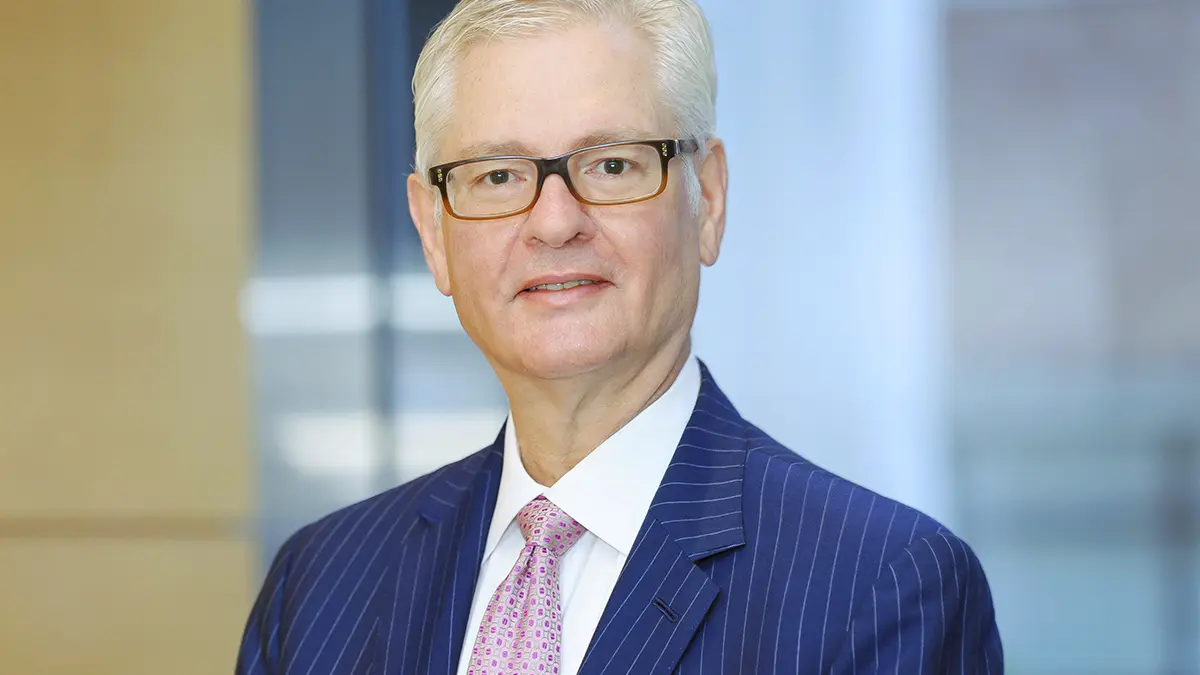
Thoracic surgeon Bernard Park discusses how MSK specialists use minimally invasive approaches and robotic-assisted surgery to do complex cancer surgeries many places won’t even attempt using conventional methods.

Your care team will include lung cancer doctors, nurses, and other healthcare providers. They’ll use only the latest treatments. They’ll support you during and after your care.
Your care team will meet regularly to talk about your treatment. You’ll have a wide range of experts on your team. They’ll give you the best possible treatment and care.
Your MSK care team will make sure you have the right lung cancer diagnosis.
Next, you’ll work with a treatment team led by 1 or more doctors who are experts in the type of lung cancer you have. At MSK, your treatment team has many experts, such as a:
Each member of your team has a special set of skills. They all work together to make a plan that will lead to the best possible results for you.
A thoracic (thor-A-sik) medical oncologist is a cancer doctor with special training in thoracic cancers. These are cancers that have to do with the chest, including lung, tracheal (windpipe), and thymic (thymus) cancers.
A radiation oncologist is a cancer doctor with special training in using radiation therapy (RT) to treat cancer with radiation.

Thoracic surgeon Bernard Park discusses how MSK specialists use minimally invasive approaches and robotic-assisted surgery to do complex cancer surgeries many places won’t even attempt using conventional methods.
A thoracic surgeon is a doctor with special training in surgery for the chest, lungs, airways, esophagus (swallowing tube), and thymus. They’re also known as a chest surgeon.
Our thoracic (chest) surgeons are national and international leaders in treating unusual tumors and complex cancer cases. This includes high-risk and advanced lung cancers. Our surgeons do more than 2,500 operations and 6,000 procedures on people with lung cancers each year.

Chief of Thoracic Surgery David Jones, who specializes in treating people with cancer of the lung, esophagus, and pleural lining, discusses the speed and quality of our care.
At MSK, lung cancer treatment starts with the correct diagnosis. Your diagnostic team is responsible for identifying the lung cancer’s type, location, and stage. We use tests such as chest X-rays, CT scans, and a biopsy to make a diagnosis. Once we have this information, we share it with your treatment team to find the best care plan for you.
A radiologist is a doctor with special training in using imaging to diagnose and treat diseases, such as lung cancer. Imaging includes X-rays, computed tomography (CT), and magnetic resonance imaging (MRI).
At MSK, lung cancer treatment starts with the correct diagnosis and treatment. Your pulmonology team includes pulmonary (lung) medicine experts and interventional pulmonologists (IN-ter-VEN-shun-al pull-muh-NAHL-uh-jists). They’re involved in your diagnosis and treatment. They’ll evaluate you for lung problems before and after surgery. They work with other members of your care team.
A pulmonary medicine expert is a doctor with special training in diagnosing and treating diseases of the respiratory system. This includes the lungs, airways, and breathing muscles.
An interventional pulmonologist is a doctor with special training in treating lung problems, such as blocked airways, cancer, and tumors.
To us, you’re more than a diagnosis. You’re a person with a life beyond cancer. We want to help you get back to it.
That’s why your MSK care team includes experts who focus on helping you and your family face challenges. There will be hurdles that come up while you’re in our care, and after active treatment ends. We’re here to support you.
A social worker is a healthcare provider with special training in helping people cope with problems in their lives. They support you emotionally by providing counseling and practical help.